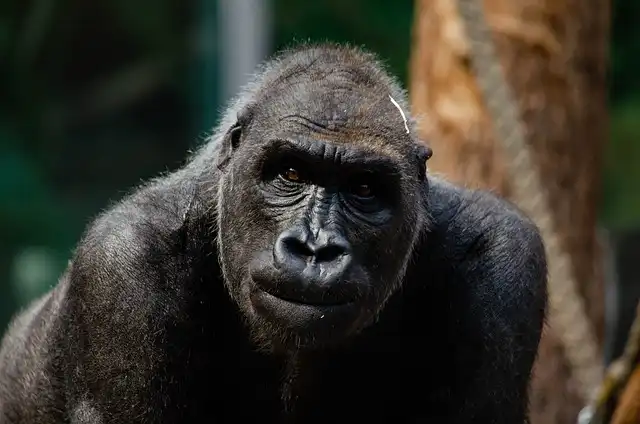Congo Jungle: Gorillas, Lodges & Conservation

Explore Congo's Odzala-Kokoua National Park: gorillas, eco-lodges (Ngaga, Lango, Mboko), and Kamba's conservation efforts. Experience raw African wildlife and sustainable tourism in the jungle.
Observing Gorillas in the Jungle
On a fallen tree in a jungle cleaning, where the morning sunlight leaked via the lacy canopy like molten gold, we located a lone blackback out for a walk. Okele, who knows the forest like his back pocket and considers this gorilla family as close as his own, had forecasted the training course of the troupe’s early morning jaunt all along, and clarified just how they gathered here to dig for roots in the clayey dirt. We sat in put on hold silence, squatted on a rug of decomposing fallen leaves, as we viewed seven more apes and a chest-clinging youngling arise from the forest’s shivering brushwood.
It swirled like a chocolate-coloured bow, smooth as oil where the current was slack, rippling with concealed life where submerged logs or unseen animals damaged the surface area. A pair of palm-nut vultures wheeled above, scanning for a hairy treat, while a slender-snouted crocodile, its mossy back hardly appreciable from the log it was relaxing on, moved noiselessly into the water.
When I began to presume that our overview had lost the story, we had actually been treading via the northern Congolese jungle for nearly 2 hours. Gabin Okele, standing bit greater than five feet high in his patched-up rubber boots, madly hacked his machete through the thicket, snipping away complexities of arrowroot and knotty lianas with a pair of garden scissors (” Salad searching,” he called it). We travelled through streams and scrambled over logs mushy from the tropical rot, past trees removed of their bark by the jungle-dwelling woodland elephants whose impacts pockmarked the sloppy path.
Odzala Discovery Itinerary
Natural World Safaris offers a nine-day Odzala Discovery itinerary with Kamba African Rainforest Experiences, with one evening in Brazzaville, three nights’ holiday accommodation in Ngaga Lodge, 2 evenings in Lango Lodge and 2 evenings in Mboko Lodge from around ₤ 12,670 each sharing naturalworldsafaris.com
Resting there, bent in between the high turfs and observing this stunning beast with no jeeps or click-click-clicking of tele-lenses around, the Africa of Blixen-esque camps and khaki-clad rangers could not really feel further away. This was something rawer, a location where nature still determines the rhythm of life, and where conservation isn’t simply an abstract idea, yet a necessity. I really felt a frustrating feeling of gratitude. For the woodland. For the people dealing with to safeguard it. And for the opportunity to attest to something so entirely, breathtakingly wild.
Her job has actually paved the means for the very experience we ‘d had that early morning, observing a habituated troupe on their all-natural lawn, enjoying them forage, play, and communicate in means that felt disarmingly human. Over dinner, she talked of the difficulties: the ever-present threat of poaching and logging, the delicate balance in between habituation and human interference, the broken heart of losing a gorilla to health problem or injury. Her words brought hope, too, a belief that via study, education, and thoroughly took care of ecotourism, these woodlands and their inhabitants might endure.
The woodland had ingested us, yet we weren’t alone. Mere meters away, from behind an impervious wall surface of eco-friendly, the noise of fracturing branches and guttural grunts loaded the silence. Wafts of dung and bestial testosterone– a scent not dissimilar to sweaty exercise gear– laced the gelatinous air, a surefire indicator of the performers of western lowland gorillas we had come to discover. Okele, however, bushwhacked on.
I might feel goosebumps diminishing my spinal column. Not even if I was locking eyes with these strangely human and critically jeopardized creatures, yet likewise since their wild perch deep inside northern Congo’s Odzala-Kokoua National Park felt as untethered from modern-day civilisation as I ‘d ever been.
Lango Lodge: Wildlife Viewing
Like Kamba’s other camps, the raffia thatch-covered bungalows at Lango Lodge lack TVs and run out reach from the erratic WiFi (which is only available near the workplace location). But with wide-screen sights over swampy Lango Bai spreading out from the foot of each bed, these mod-cons are hardly missed out on. Lango Lodge is a basecamp for bai strolls and kayak scenic tours down the Lekoli River, where forest elephants and buffalo learn mineral-rich waters and groups of African grey pigeons take flight at dawn. The raised pathway to the main lodge creates prime wild animals detecting before sundowner alcoholic drinks with your toes in the water.
Much more a rest quit than a high-octane jungle immersion, Mboko Lodge is established on an open savanna populated with termite piles that look like Buddhist temples. The riverfront cabins, with canvas walls and furnishing from kaleidoscopic African textiles, open to personal decks from where you can detect grazing forest buffalos and red river hogs arising from the forest. From right here, watercraft safaris wind through thick riverine forests, while golden video game drives use glances of timid hyenas and the occasional woodland elephant. By night, the crackling fire pit becomes a celebration place to exchange tales over plates of barbequed fish and plantain mash.
Tina Plattner resembled this belief when we spoke about the people that called these woodlands home. “They’re the guardians of the forest,” she claimed. That philosophy is at the core of Kamba’s objective, making sure that their jobs supply sustainable jobs as a choice to searching and logging.
We passed through streams and rushed over logs mushy from the tropical rot, previous trees removed of their bark by the jungle-dwelling woodland elephants whose impacts pockmarked the muddy trail.
My remaining sense of insignificance grown upon arrival at Lango Lodge, where the forest opened into a substantial, marshy cleaning understood as a bai, a mineral-rich watering opening drawing wildlife from miles around. Lango Lodge is a basecamp for bai walks and kayak scenic tours down the Lekoli River, where woodland elephants and buffalo wade through mineral-rich waters and flocks of African grey pigeons take trip at dawn. The riverfront cabins, with canvas walls and furnishing from rainbow African fabrics, open to private decks from where you can spot grazing woodland buffalos and red river hogs arising from the jungle. From right here, watercraft safaris wind through thick riverine forests, while golden game drives offer looks of shy hyenas and the periodic forest elephant.
In Mbomo, a small town on the park’s perimeter, she boarded a pirogue and drifted down the Lekoli River, past whisper-quiet forest elephants and crocodiles hiding in the tangles of environment-friendly. Gripped by the wild charm of this jungle sprawl, component of the Congo Container that’s just 2nd to the Amazon in size, she reversed and stated: “I’ll do whatever it takes to aid safeguard it.” Practically 20 years later on, that guarantee had actually turned into Kamba African Rain Forest Experiences, a string of deluxe jungle lodges mixing ecotourism with research and community interaction, handled by her little girl, Tina Plattner.
Our very first base camp was Ngaga Lodge, a cluster of raffia-roofed cottages set down high on stilts in the heart of the forest. Created to merge seamlessly with its surroundings, the camp exuded an air of basic luxury, an area where mosquito webs rippled in the breeze of whirring lanterns and followers cast gold swimming pools of light onto the forest floor. It was difficult to disregard the noises of nature below: the high-pitched whines of unseen insects, tree hyraxes screaming like demonic toddlers, and, if you listened very carefully, the periodic deep-throated grunt of something far larger impending in the dark distance. However Ngaga isn’t simply a jungle lodge, it’s a nerve centre for Congo’s primate research, an area where the lines between tourist and conservation blurred into a solitary, symbiotic existence.
My sticking around feeling of insignificance grown upon arrival at Lango Lodge, where the forest opened up into a huge, marshy cleaning recognized as a bai, a mineral-rich watering hole attracting wildlife from miles about. It was slow-going, the muck gripping our legs like a living animal, yet the incentive was worth it: we were, quite literally, complying with in the footsteps of hippos and woodland elephants, whose commutes have actually sculpted out these muddy pathways over thousands of years.
Ngaga Lodge’s perch, in a twisted patch of rain forest simply outside the Odzala-Kokoua National Park’s official borders, places it on the front door of three different gorilla households and a short drive away from the area’s largest town. Each of the camp’s 6 turtle shell-shaped bungalows is a fan-cooled fantasy of raffia hand leaves and okala wood, with beds curtained in gauzy insect internet and shower rooms clad in hand-hammered copper. From a windy viewing deck overlooking the forest canopy, the lounge and dining room provide après-trek beverages and French-Congolese suppers that might include everything from beef tartare to saka-saka stew from thinly reduced cassava leaves.
Ngaga Lodge: Primate Research
As a kid of the Black Forest, her accessory to the wild is deeply rooted. She initially came to Congo in 2007 as part of a reconnaissance tour that likewise brought her to Malawi, Zambia, Botswana and Rwanda to extent out ways to place her family members ton of money to make use of in the conservation of the environments and neighborhoods of Sub-Saharan Africa.
1 African jungle2 Congo
3 conservation
4 eco-tourism
5 gorillas
6 South African wildlife
« Travel Updates: Paths 360, TUI, Vueling, Tampere, Tampa, AalborgVenice Entry Fee: Balancing Tourism & Preservation »
